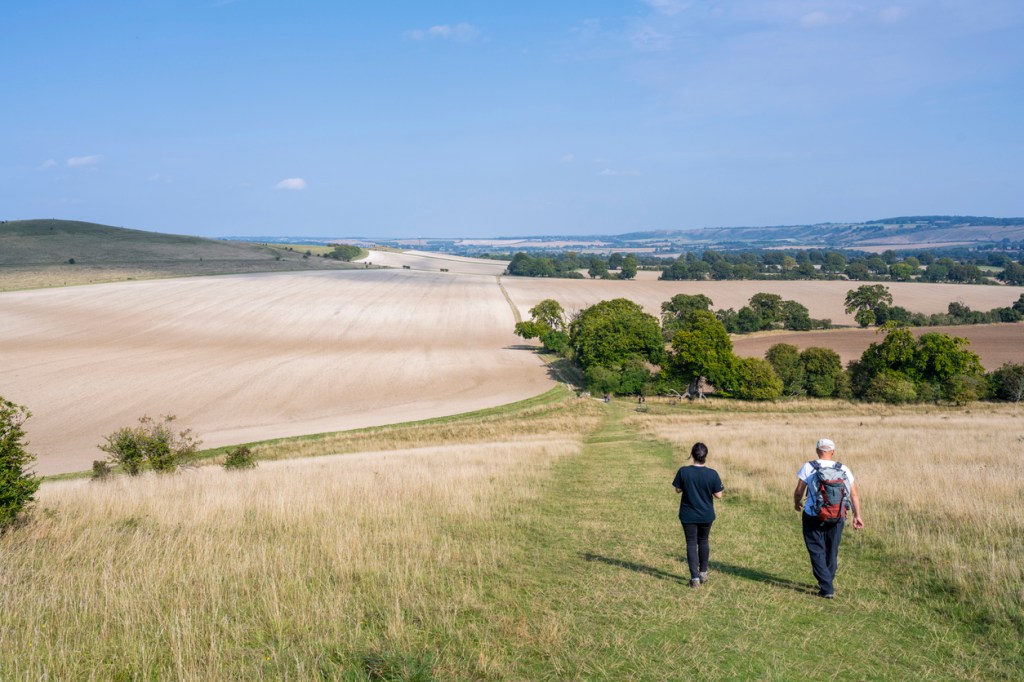One of my favourite dad jokes – and, since I became a father, I have many – is to respond to the question ‘How did you sleep?’ with ‘I lay horizontally in a darkened room with my eyes closed’. But it has never been that simple for me. All my life I have suffered from insomnia. Something that should be easy – newborn babies can just about manage it, after all – has become the hardest thing in my life.
I’ve lost jobs because of it, and relationships: you feel like you are cut off from society. That’s one of the most annoying parts – most people’s response to the word ‘insomnia’ is to feel an obligation to say: ‘Really? I always fall asleep the moment my head hits the pillow!’ I can’t imagine any other illness where that is someone’s immediate reaction: no one tells depressives that they are in a good mood, or shows a person in a wheelchair how easy they find it to dance the cha-cha.
It feels like being an outsider on life. While others are sleeping, you are wakeful – not ‘awake’, which implies alertness and the opposite state to ‘asleep’; this wakefulness is a barren no man’s land which is only not-sleep – and then when everyone else is awake, you are, if not asleep, sleepy and unproductive. A recent report from RAND Europe estimated that chronic insomnia costs the UK economy £34 billion a year in lost productivity – and while I’m reluctant to place too much trust in a report paid for by a manufacturer of sleeping pills, I can well believe that it has cost us more than Brexit.
Your life becomes controlled by insomnia: sleep is not the natural consequence of your day, but your day is controlled by your sleeping. Your whole life, in fact, is a servant to your sleep patterns. I seriously considered a vocation to the monastic life after I went on a retreat and slept well for the first time in my life. (I spent a year in a priory in the north of England, watching the soporific effects gradually wear off.)
There came a point in my marriage when I admitted to my wife that I needed sleep more than I needed to share a bed with her. She was very hurt – at least until she realised it would allow her to read in bed, watch telly in bed, rearrange sheets and pillows in the middle of the night and all the other things I have begged her not to do in the name of ‘sleep hygiene’.
I learnt the phrase the first time I saw a doctor about my sleeping. I was working for a law firm, and they sent me to a doctor specialising in sleep disorders – in fact, he specialised in lawyers’ sleep disorders. (I’m not sure that lawyers’ insomnia is any different from any other sort of insomnia; this is more like the doctor in the Tom Lehrer skit who specialised in diseases of the rich.)
This doctor had a lot of wheezes, some of which were sensible (not drinking coffee after lunch); some of which were annoying but probably a good idea (setting my radio alarm to loud, brash Kiss FM instead of Radio 4 to wake me up in the morning); and some of which were just silly. His most terrible wheeze to stop me oversleeping was to get me to write post-dated cheques to a selection of unsympathetic organisations – CND, Dignity in Dying, Republic – which he would keep in his office. For every time-stamped receipt I brought in proving that I had not overslept, he would rip up a cheque. I think I might have kept those organisations afloat for much of the Blair years. It didn’t work – in fact, it got worse. The more desperate you are to sleep, the less likely it is that sleep will come.
So I wasn’t hopeful when a psychologist I met at a bar mitzvah insisted that he would be able to help me. My GP wasn’t either, but he was happy to sign the referral form if it meant he could get me out of his surgery without prescribing sleeping pills. (I was later told that medical training in this country includes only half an hour on sleep, presumably because no one wants junior doctors to rumble that sleeping is important.)
One of the first things the doctor from King’s College London’s Insomnia and Behavioural Sleep Medicine Clinic told me was that the sleep hygiene tricks I’d been taught were useless on their own. Just as hygiene in a kitchen doesn’t guarantee good food – restaurants that proudly display their hygiene certificates are always terrible, as you’d expect when their main selling point is ‘this food will not actually kill you’ – so going without coffee and not doomscrolling in bed are the bare minimum for getting to sleep. It’s important to keep your bedroom as a space for sleeping only – although the guidance they gave us does give a pass to getting dressed and undressed (15 minutes max.) and sex (no time limit). Everything else is banned. (Unfortunately, it was a group consultation, so I was too shy to ask about what Viz magazine calls Temazepalm.)
The tip I found most effective was perhaps the most counterintuitive of all: keeping your eyes open when you go to sleep
At the core of their system is what they call sleep compression. The idea here is that you work out your average sleep, and then work backwards from your alarm clock to find the time you should go to bed. Which sounds deeply counterintuitive – all of us in the group found that, at a clinic to help us sleep, we were being told to stay awake until 3 a.m. or 4 a.m. at the earliest – but, on paper, we shouldn’t lose any sleep as a result. And it works: your homeostatic sleep drive makes you sleepy – one of their jingles is that sleepiness is not the same as tiredness, which should have been obvious to me after three decades of not being sleepy when I’m exhausted – and once you are sleeping those four hours happily, and can show your sleep efficiency on a spreadsheet, you can pull your bedtime back by 15 minutes.
And as well as concentrating sleep, they encourage you to concentrate anxiety. As part of a bedtime routine, there is a time (T-90 or so) for Constructive Worry: a sort of two-minutes’ hate for neurotics.
There are a variety of other tricks and exercises, which might or might not work – for this reason, it is imperative to try them out outside the bedroom first – like muscle relaxation (I found the voice of the accompanying audio track annoying) or picturing a favourite place (whenever I thought of Dartmoor, I would always picture a rain storm, which shows that my subconscious a. hates me and b. takes an approach of gritty realism to weather conditions in Devon).
The one I found most effective was perhaps the most counterintuitive of all: keeping your eyes open when you go to sleep. At first, I thought it was just reverse psychology, but that tends to wear off once you know you are being manipulated. In fact, what seems to happen is that when you try to empty your mind, you are invaded by thoughts that you hadn’t got rid of in the two minutes’ panic; with your eyes open and staring at a black ceiling, you do actually think of nothing at all. Now whenever anyone asks how I slept, I tell them I lie in a darkened room with my eyes open.
This article is free to read
To unlock more articles, subscribe to get 3 months of unlimited access for just £3








Comments
Join the debate for just $5 for 3 months
Be part of the conversation with other Spectator readers by getting your first three months for $5.
UNLOCK ACCESS Just $5 for 3 monthsAlready a subscriber? Log in